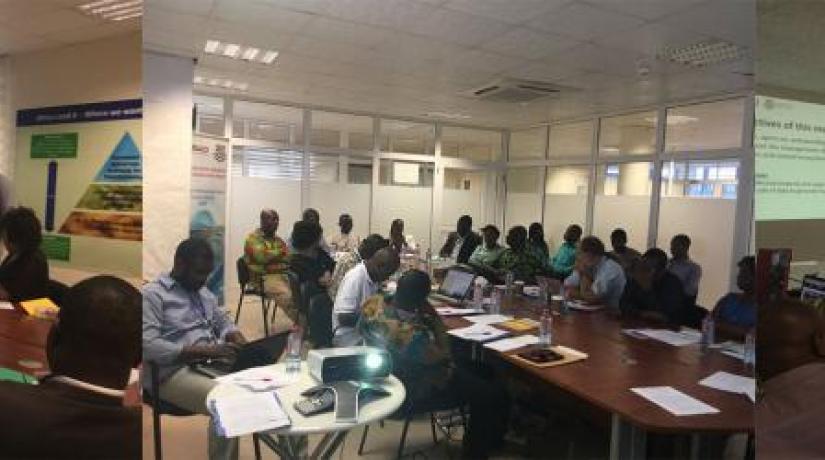Image

Posted On
Thursday, December 7, 2017 - 12:54
Body
Background of the dialogue
To take the right actions, decision makers, fishing businesses and citizens must be provided with reliable and up-to-date information on the state and dynamics of our fisheries resources and their supporting systems.Such information including those on hydrography, nutrients, trophic interaction and biological rates, as well as fisheries production, socioeconomics and policy are collected, analysed and used by scientists scattered over different institutions and locations. This combination of large datasets(both historical and present), geographic distribution of users, and multidisciplinary nature of fisheries issues requires stringent data archiving and management that are not met by existing infrastructure for fisheries data management in Ghana. Rather, data on fisheries and the marine environment are scattered in the repositories of different national institutions such as CSIR, EPA, Universities and scientific survey divisions of Government Ministries (e.g., of Fisheries and Aquaculture Development). The current situation limits our capacity to effectively integrate long-term observations on fisheries development and other anthropogenic actions in our coastal regions. So, the primary goal for this national dialogue is to collectively develop an efficient strategy for the collation, management and online distribution of relevant data to support fisheries and coastal resource management and research in Ghana.
Note from Dr. Aheto (Director, Centre for Coastal Management)
Last week in Accra, and in preparation towards the launch of an online database portal and information clearing house on Fisheries and Coastal Management for Ghana, it was important to meet with scientists and stakeholders across the country to elicit their views, input and support for this activity being rolled out as part of our Capacity Building Support Intervention with funding from USAID. “FishCom Ghana" (Acronym meaning "Fish"eries and "Co"astal "M"anagement) will serve as Ghana's leading Fisheries and Coastal Management Information Clearing House and Knowledge Management System on fisheries and coastal issues in Ghana. We are very grateful to AfricaLead for coordinating and providing facilitation for the 2-day meeting at their premises. We are also indebted to the Heads, Directors and Representatives of the following institutions partnering us in rolling out this activity:
- Environmental Protection Agency of Ghana
- Ministry of Fisheries and Aquaculture, & Fisheries Commission
- University of Energy and Natural Resources
- University of Ghana
- Kwame Nkrumah University of Science and Technology
- University for Development Studies
- Council for Scientific and Industrial Research
- University of Rhode Island
- United States Agency for International Development and
- Civil Society Representatives
- FishCom Ghana is a comprehensive service to be provided by the Centre for Coastal Management (CCM) which has a special affiliation to the Department of Fisheries and Aquatic Sciences, both at the University of Cape Coast.
FishCom Ghana will serve to provide real-time and archived social and scientific information on Ghana’s aquatic ecosystems in general and their resources in particular for access by students, scientists, policy makers, government agencies, non-governmental agencies and the private sector both local and international.
I am very grateful to Dr. Acheampong, Dr. Asare, DFAS academic staff and the project team for your immense contributions to this effort.
God bless
Dr. Denis Aheto
Director, Centre for Coastal Management (CCM)
Last modified
